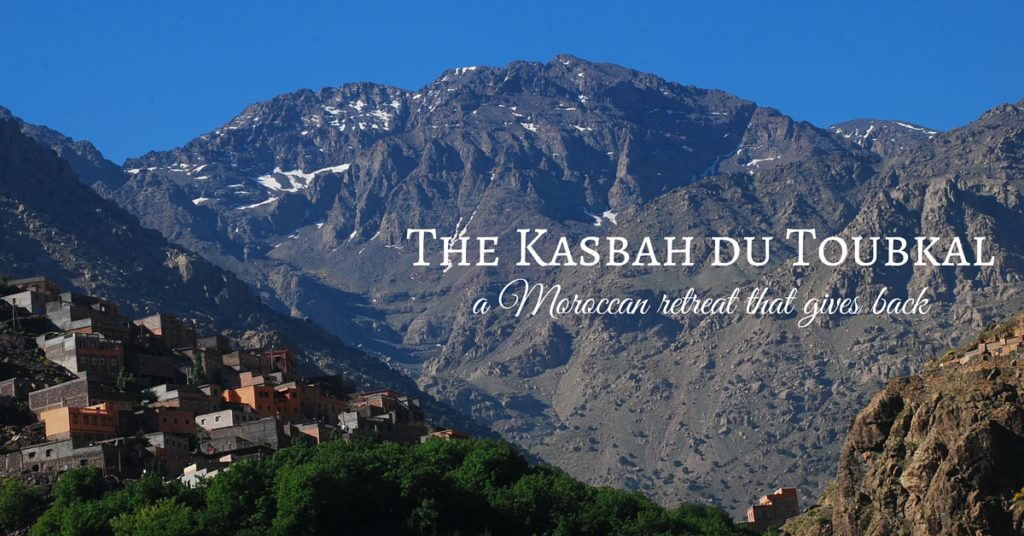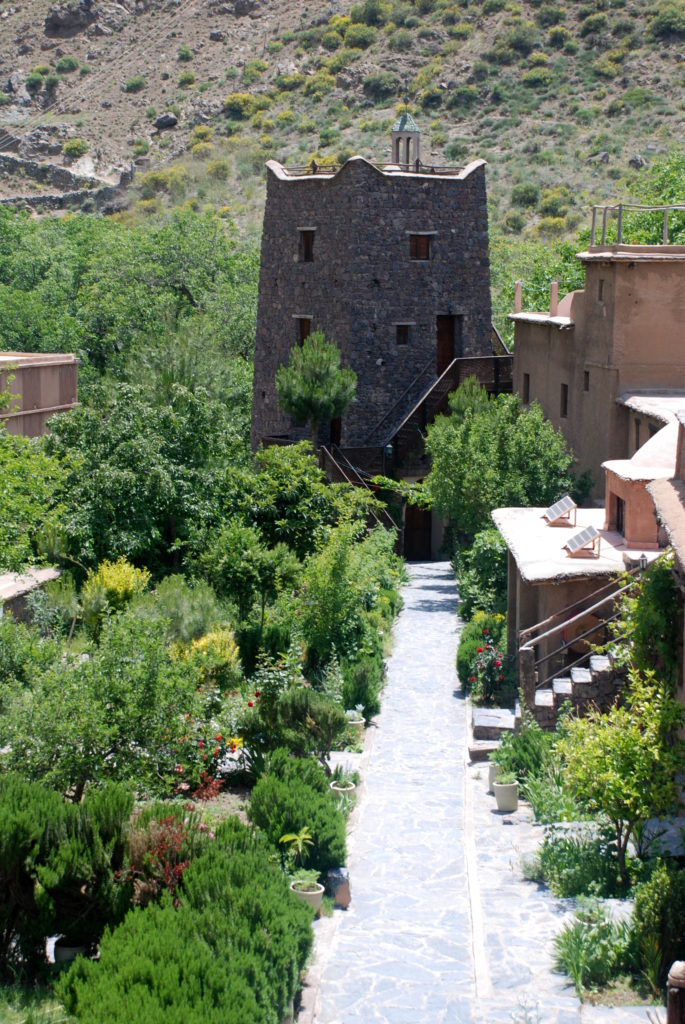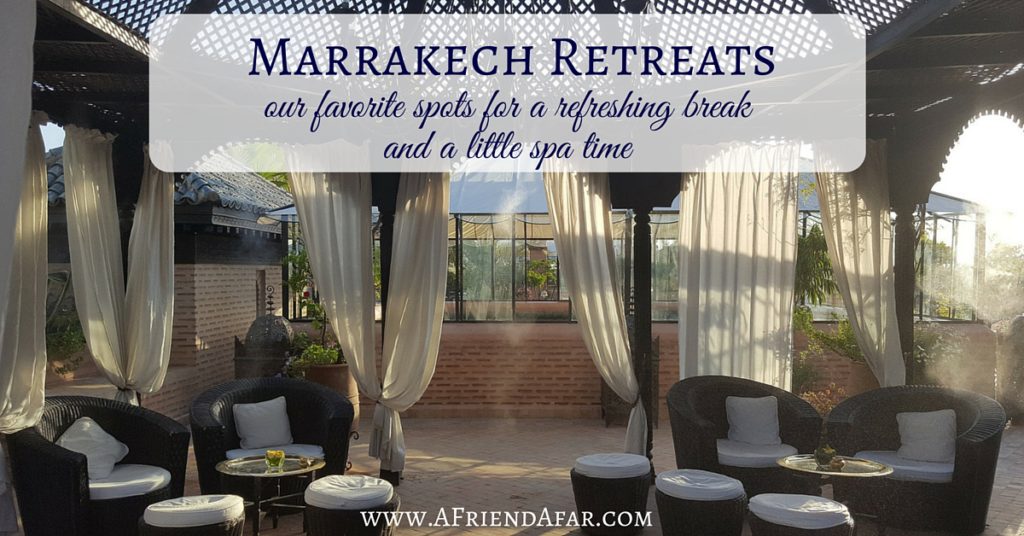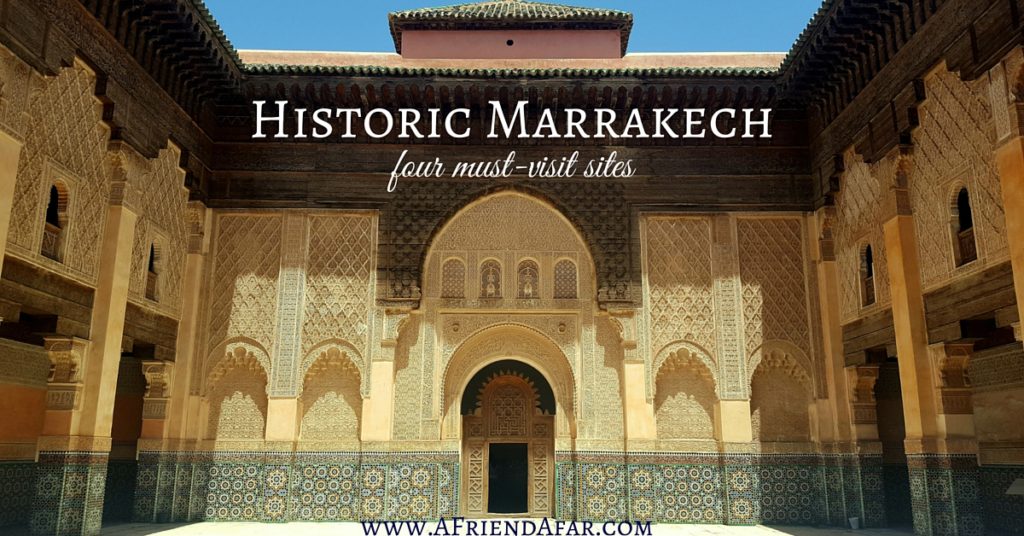
About the Kasbah du Toubkal
We recently returned from Morocco, and while we loved the excitement of Marrakech, we can’t get the tranquility of the Atlas Mountains off our mind. Less than 2 hours from Marrakech, the Imlil Valley is home to the most unique lodge we have ever had the opportunity to visit. We stayed only 2 nights at the Kasbah du Toubkal, but now we’re dreaming of going back for more.
The Kasbah du Toubkal is truly a special place. After all, it has been chosen as a National Geographic Unique Lodge of the World. Its uniqueness is evident as soon as you arrive in Imlil. At the small office in town, you are met by your host and a mule that will carry your luggage up the path to the Kasbah. It’s a rambling fortress of a lodge perched on a hilltop overlooking the Imlil Valley while Jbel Toubkal, the highest peak in North Africa, rises behind it at 13,671 feet.
If the view and the hike don’t take your breath away, the story of the Kasbah will! The land and a kasbah in ruin were purchased in 1989 by Discover Ltd, a family affair, and after years of traditional methods of construction by local laborers with local materials, the Kasbah du Toubkal opened in 1995. Since then, it has impacted the Imlil Valley through sustainable and responsible tourism.

A view of the gardens and lodging from the rooftop where we spent our afternoons lounging under Jbel Toubkal to the sound of birds and the waterfall.
Continue reading →
Meagan grew up in the North Georgia Mountains and spent her first trip abroad in Italy. She’s been traveling all over the world ever since, learning Spanish, Japanese, and Thai. She travels for the food, the culture, and the history.




